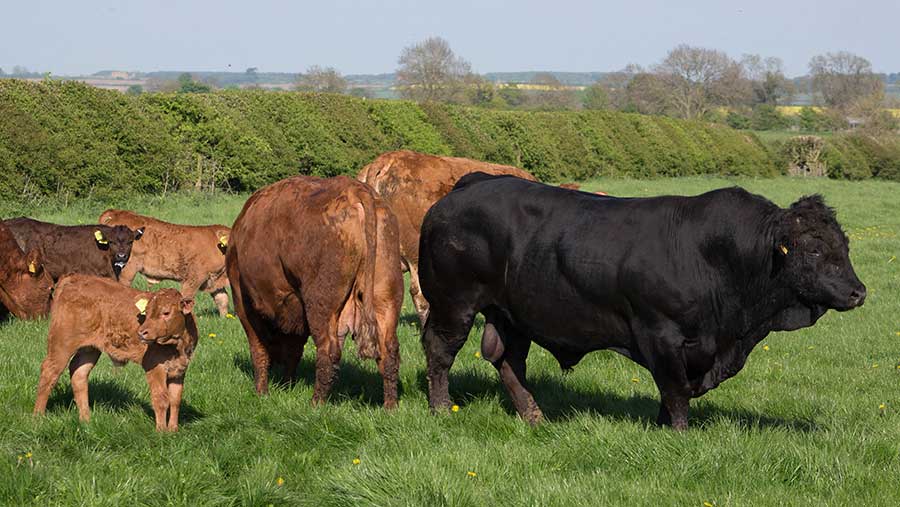Opinion: BBC’s ‘anti-meat’ bias taints public opinion
 © Tim Scrivener
© Tim Scrivener Climate change is perhaps the defining issue of our age. I wouldn’t want any reader to think that I don’t take it seriously, or that I’m not willing to change my business and lifestyle to help make a difference.
I just want to make sure that we make the right decisions and don’t end up with another diesel-style fiasco, where misguided views actually make things worse.
Anti-meat bias runs deep within the BBC and this flavours the national conversation. Take the BBC Climate Change Food Calculator – probably the most popular tool of its type, quoted in many articles referencing meat-eating.
See also: Joined-up response needed to balance vegan arguments
Choose “beef” from the drop-down menu and select “once a day”, and it tells us that 295sq m of land is required to produce just 1kg of beef.
That sounded like rather a lot to me, so I did a sense check and multiplied this number by the UK’s annual beef consumption – about 1.2m tonnes. It turns out you would need 354,000sq km to produce that much beef: that’s bigger than the entire land mass of the UK and Ireland combined.
Even if we ripped up all the roads and cities and stopped producing any other sort of food, we still wouldn’t have enough land.
Unfortunately, the BBC has misread the report it used to build its calculator, and despite complaints, refuses to change it.
The actual figure in the report by Poore and Nemecek is 185sq m, but even this is a global average, based on grazing the vast plains of places like South America. The UK figure is estimated at 50sq m for every 1kg of beef, or just 17% of the BBC’s headline number.
And, as any farmer knows, the vast majority of this is marginal land. So the very idea of measuring land use in this way, in order to infer meat is inefficient and somehow in competition with other forms of land use, like growing vegetables, is pure nonsense.
The BBC calculator is on similarly dodgy ground when it comes to greenhouse gas (GHG) emissions. It infers that beef production emits 103kg GHG for every 1kg of meat.
Again, it has misinterpreted the underlying research, which suggests a figure almost one-third lower. And the fact this is a global number totally inappropriate to UK production does not stop the BBC from comparing eating beef to heating “an average UK home”.
For the record, it states that eating just one small (75g) beef burger a day is equivalent to heating the average UK home for more than a year – or 447 days to be precise. Just read that sentence again…
This level of GHG emissions would imply beef farming is responsible for more than 20% of total UK GHG emissions. In contrast, the government estimates that UK farming of all types accounts for just 10%.
If we are serious about preserving our planet for future generations, we are all going to have to make some tough choices. It has never been more important that we use the best science to guide our policies and inform our consumers.
As farmers, we are going to have to get better at measuring and reducing our emissions.
However, if the urban elites running our national broadcaster think they’re doing the world a favour by encouraging people to switch from British beef to imported meat substitutes grown in a sterile and degraded monoculture that was recently home to a rainforest, they have rarely got it more wrong.
Andrew Loftus is director of Sellmylivestock and NFU livestock board member.
